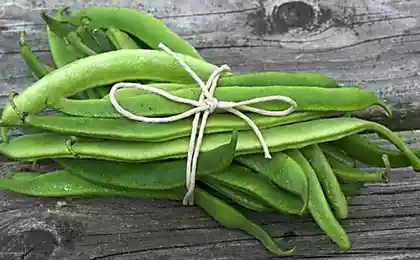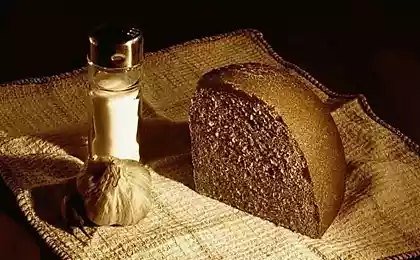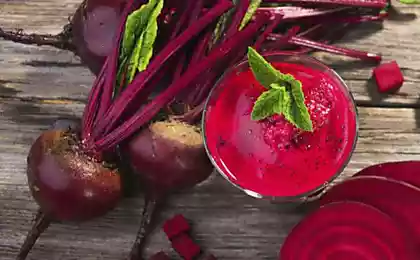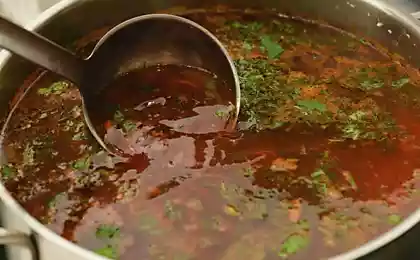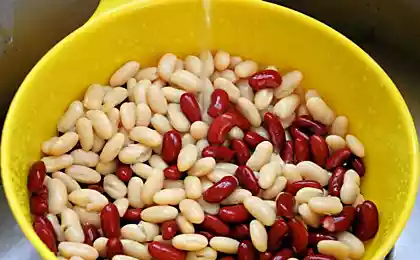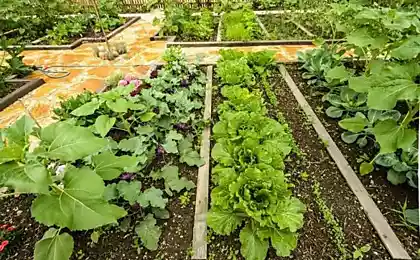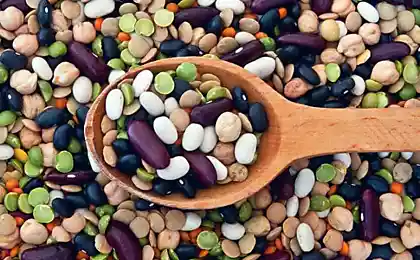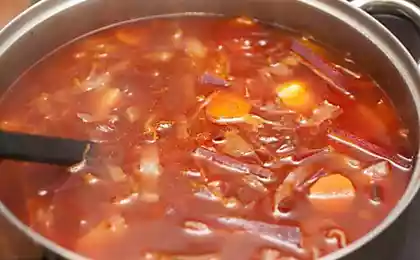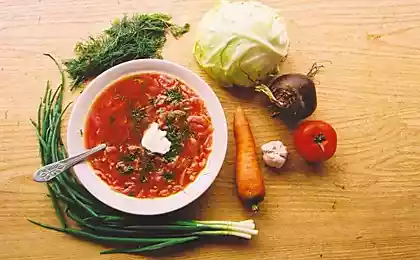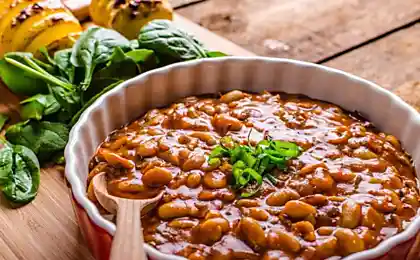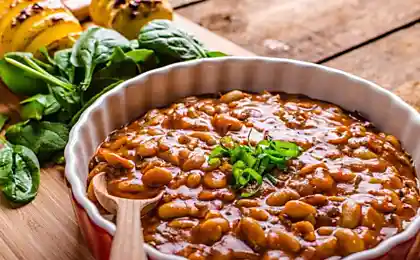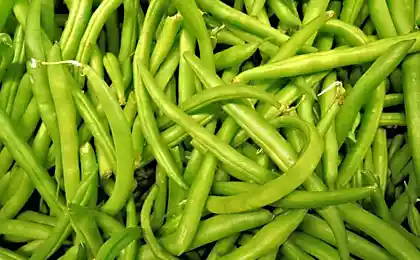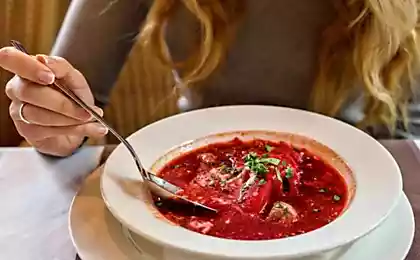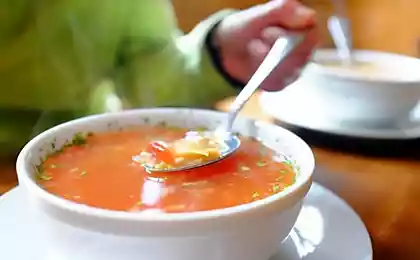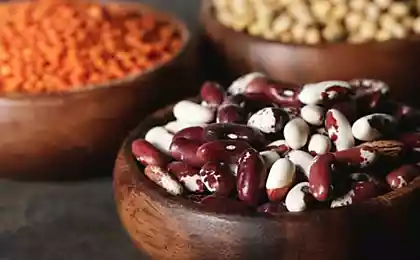163
The mistake of a young hostess, which irreversibly spoils borscht
Not so long ago we served a recipe for good borscht. And then, of course, I read the readers' comments. Several conclusions can be drawn from this. First, the way to a man's heart is through his stomach, and borscht is the best tool. Second, the one that cooker- out of competition. And three: borschtEveryone knows, but at the same time nobody. The eternal debates about beans, the amount of beets and cabbage, what, what and how to add to this dish, I think, testify to the fact that, indeed, every mistress has her own borscht. There is a place.
Well, what about improving, cooking like no one else can? To be called "your corporate borscht." That's why I collected it here. The main mistakes in the preparation of borscht And tips for cooking a really tasty and non-banal dish. Something from restaurateurs and chefs, something in memory of my grandmother and, of course, took a lot from the comments of readers. So never be too lazy to write under posts. And let’s agree, this prefabricated “borscht image” is not the dish itself. Each item should be considered separately.
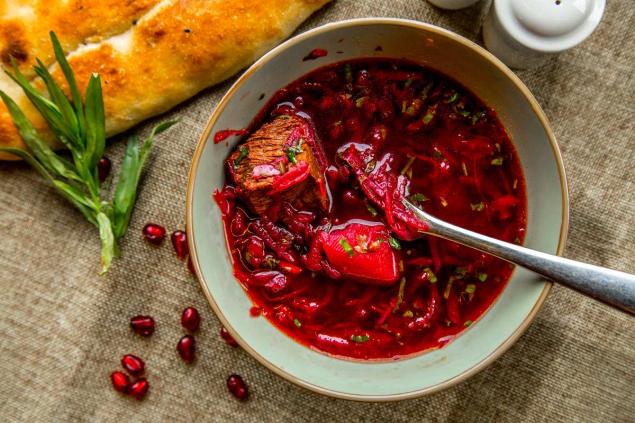
© Freepik How to properly cook borscht Here are a few points that you should pay attention to.
It is the tandem of beets and tomato paste that makes borscht red. Beets for this (after passering) are recommended to add to the pan somewhere at the end of cooking, so that the color does not change. But if you use borsch beets, be prepared that a red dish will not work. My grandmother had it just yellow and smelled good.
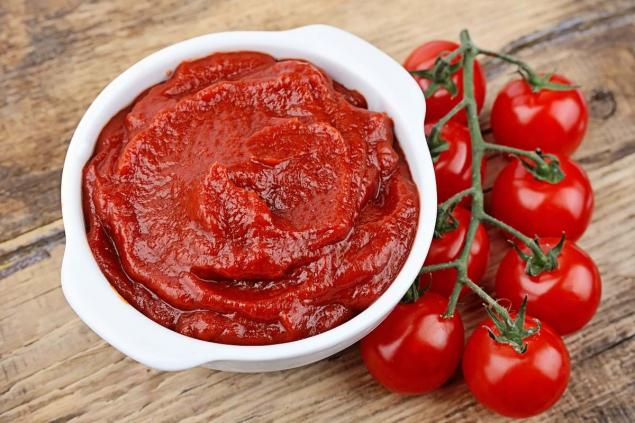
Condiments and spices for borscht In addition to the usual lavrushek and pepper, it is good to add a little coriander, hops-suneli, Provencal herbs to modern borscht. Fans of spicy will be delighted with “peppers”, that is, pod hot pepper.
My secret ingredient is ground-seed. I don't know why, but this spice seems to me the most suitable for the taste of borscht. And my grandmother always added dried dill (greens), stored since the summer. She dried a lot of it. Frozen greens could be, too. I use a frozen parsley.
And if we talk about parsley, it will be very useful to add its root to borscht. Or the root of parsnip - a folk aphrodisiac.
All right, we got the spices. But for the taste to be really balanced, sometimes not enough. sour. You understand that the abundance of vegetables, in particular carrots, makes the dish sweet. Fermented / sauerkraut corrected the taste. But if you do not have it, vinegar, citric acid (on the tip of the knife) or even lemon will come to the rescue. I like to add. apple-cider vinegar Or wine shop vinegar.
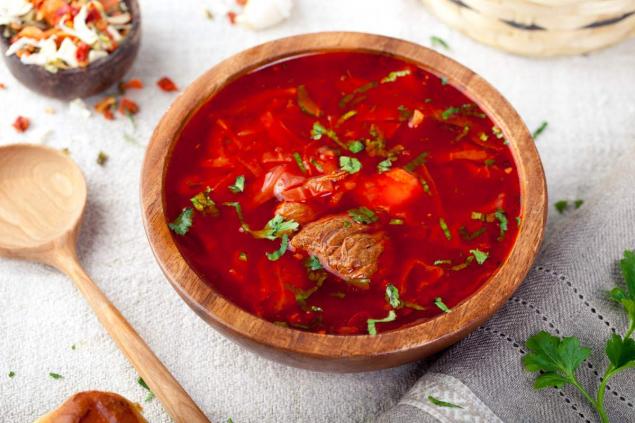
A good borscht is like a love potion. I think you know, too, How to cook borscht properly. Write about it in the comments. And be sure to tell how your culinary creativity is perceived by relatives and friends.
Well, what about improving, cooking like no one else can? To be called "your corporate borscht." That's why I collected it here. The main mistakes in the preparation of borscht And tips for cooking a really tasty and non-banal dish. Something from restaurateurs and chefs, something in memory of my grandmother and, of course, took a lot from the comments of readers. So never be too lazy to write under posts. And let’s agree, this prefabricated “borscht image” is not the dish itself. Each item should be considered separately.

© Freepik How to properly cook borscht Here are a few points that you should pay attention to.
- Oil in borscht cannot be added It's not soup! It is clear that borsch This means adding onions, carrots and beets. Usually the vegetables are finely cut and roasted in vegetable oil, and then laid out in a pan. However, as it turned out, this is a big mistake – the famous chef said that no oil should be added to borscht. This was told by the author of the blog “Culinary College”. The famous chef, who she did not name so as not to advertise to him, did not just criticize such a recipe. He called it a roast. The main mistake in the preparation of borsch.
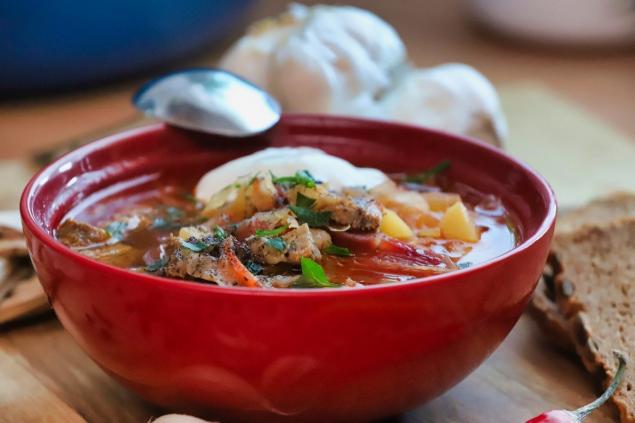
According to the chef, roasted vegetables make the dish too brewy and fatty, and since it already has meat, it is superfluous.
Obviously, the expert believes that carrots, onions and beets should be put raw in the correct borscht. And everyone who can not do without roasting, advises at least roast vegetables without butter, that is, adding a little broth to the pan. - Beans in borscht Someone does not accept beans in this dish, and someone does not think it without legumes. It turns out that beans have long been added to borscht as a substitute for meat. After all, this is a vegetable protein that is well absorbed by the body. Then why make meat broth and add meat to borscht, if there is already one kind of protein there - beans?
It, like some other legumes (chillets, beans), was added when cooking a lean dish. In lean They put beans as a substitute for animal protein, meat.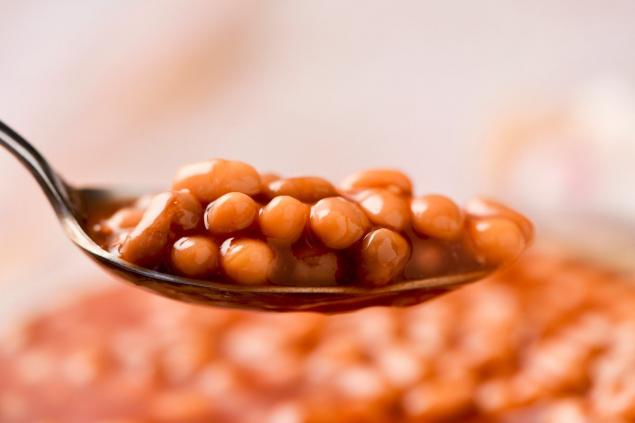
But even in meatless borscht It's good to add it. Like, like this, folk-style.
In the pan we put a piece of lard (ideally internal) and cook beans. At the end of cooking, we take out the lard and knead it together with garlic in the stupa, stir, and then lay it out again in the pan. - Beets as the main ingredient Opinions are very divided here. Some housewives like to have more of this product in the borscht, others - less. Someone rubs on a grater, but most cuts finely with a knife - and this is the right approach.
Regarding varieties, the beet "dining" (vinegret) is a relatively recent option. Our ancestors cooked from the so-called bornet. In the cut, it's striped.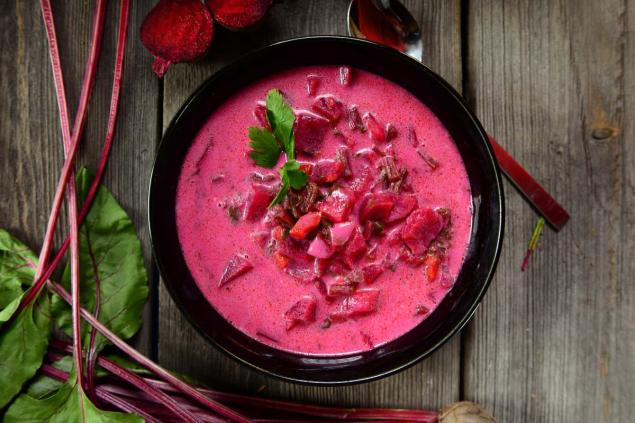
Passerage beets is necessary, then there will be no pronounced beet smell. Another way to prepare beets for borsch is fermentation. I think it’s like my grandmother always did.
It is the tandem of beets and tomato paste that makes borscht red. Beets for this (after passering) are recommended to add to the pan somewhere at the end of cooking, so that the color does not change. But if you use borsch beets, be prepared that a red dish will not work. My grandmother had it just yellow and smelled good.

Condiments and spices for borscht In addition to the usual lavrushek and pepper, it is good to add a little coriander, hops-suneli, Provencal herbs to modern borscht. Fans of spicy will be delighted with “peppers”, that is, pod hot pepper.
My secret ingredient is ground-seed. I don't know why, but this spice seems to me the most suitable for the taste of borscht. And my grandmother always added dried dill (greens), stored since the summer. She dried a lot of it. Frozen greens could be, too. I use a frozen parsley.
And if we talk about parsley, it will be very useful to add its root to borscht. Or the root of parsnip - a folk aphrodisiac.
All right, we got the spices. But for the taste to be really balanced, sometimes not enough. sour. You understand that the abundance of vegetables, in particular carrots, makes the dish sweet. Fermented / sauerkraut corrected the taste. But if you do not have it, vinegar, citric acid (on the tip of the knife) or even lemon will come to the rescue. I like to add. apple-cider vinegar Or wine shop vinegar.

A good borscht is like a love potion. I think you know, too, How to cook borscht properly. Write about it in the comments. And be sure to tell how your culinary creativity is perceived by relatives and friends.
Waiting for my daughter-in-law from the hospital, I decided to bake her favorite cake with spinach.
Through trial and error, I learned how to cut the garden in the spring.






